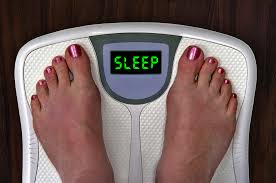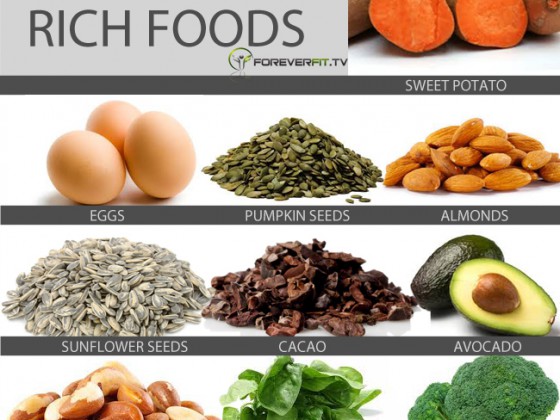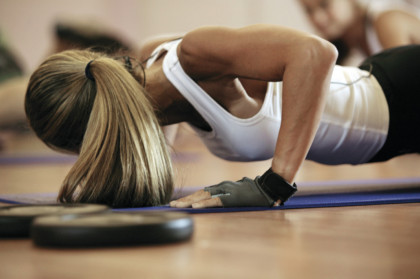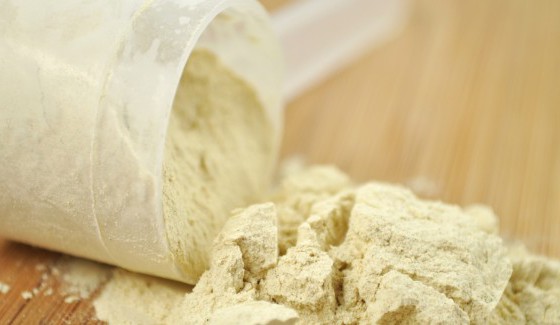Many factors of modern life can have an impact on your gut health, such as taking antibiotics, high levels of stress, not enough sleep and consuming processed and high-sugar foods all damage and effect the bacteria found in our stomach. If your gut bacteria is out of balance, your body isn’t able to digest food as well and this impacts your ability to absorb nutrients, which can lead to digestive conditions and other symptoms such as gas, bloating, constipation, diarrhea, heartburn, mood swings, depression, anxiety, difficulty concentrating and joint pain. This can also be the hidden culprit for everything from weight management, fatigue to learning and behavioural difficulties in children, asthma and skin conditions such as eczema and rosacea to name a few.
Positive lifestyle changes you can make are;
By maintaining a healthy gut, you will contribute to better overall health and this may assist in weight loss and management. However, a person should talk to their doctor before making any drastic changes to their diet.
I often speak to people about their goals, fitness aspirations and the ideal body they are hoping to achieve.
A question I always ask is “what are the most important things you are looking for in a personal trainer?” The results vary greatly but there are some common themes.
“Someone to push me” is a common one . Sometimes the person thinks they need to be pushed to their limits in order to achieve the outcome they want. They may have tried exercising , or been exercising for a reasonable time but they are confused because the results have not occured. Automatically, they think that they need to be trained harder as this what is needed to achieve their goal.
High intensity training needs to balanced and planned, followed by rest and recovery, and sound nutrition. Excessive training at these levels can also be dangerous. In reality, the person probably needs support and guidance to address;
On another level, whether conscious or not, sometimes people do not want to change the way the eat, follow nutitional guidance, nor address taking advice from another person. Sometimes there is often an interplay with accountability as well, so the person doesn’t want to show their food journal. The ego is in control here.
The result is that the person believes that traininig harder or being “pushed” will do the trick, when in reality it may be other factors that need to be addressed.
The whole picture needs to be examined, and following the program and advice of a fitness professional will help you achieve your goals in the shortest possible time.
Many articles magazines mention how “lack of sleep can make you fat” but there is a lack of understanding on the mechanisms behind this statement. It is to many individual’s understanding that if you sleep less and eat less, it does cause you to reduce weight, which is true, particularly if you are active during those hours you are awake. In terms of sleep deprivation and weight gain, how does this fall h and in hand?
and in hand?
Have you ever been up really late and find yourselves fighting against those late night cravings, which you can only resist for so long before you begin eating? This is due to a disruption of hormones which in turn can affect your appetite; hence it is very unlikely that you will eat less when you are sleep deprived. Sleep deprivation reduces leptin which is the anti-starvation hormone (anorexigenic hormone) that is secreted from the brain. The body also causes an increase in ghrelin which increases hunger.
Why does this have to happen at night, especially when we aren’t supposed to eat in large amounts at this time? This is because the body has the tendency to self-regulate. For instance, if you are not sleeping, then your body is awake and the body thinks that for this reason there is a greater need for energy, especially if you are fatigued and your body is forcing itself to stay awake. To fulfil the energy demands for the body, reduction and increase in ghrelin hormones are activated to increase appetite.
If y ou are feeling tired, pain, having trouble sleeping, or anxious stressed or depressed, muscle cramps or twitches, you may have a magnesium deficiency.
ou are feeling tired, pain, having trouble sleeping, or anxious stressed or depressed, muscle cramps or twitches, you may have a magnesium deficiency.
Magnesium is required by every organ in the body for;
Many of us do not get enough magnesium in our diets. Adults require about 300 to 400 milligrams a day.
Magnesium is very beneficial for;
Foods that are high in Magnesium inlude;
You can also use supplements in the form of tablets which are available in most supermarkets.
Whilst the gym provides its members with great equipment to facilitate the weight loss journey, most people find that it takes a while to see progress. Why is this?
First of all the being in a gym environment can be very boring, especially during individual exercise; where you spend 20 minutes on the treadmill and 20 minutes on the weight machines. Secondly most individuals attending the gym don’t really know what to do with the equipment or how to use the equipment in what is best suited for them.
It is one thing to know how to operate the machines but to use in in a way which is beneficial to you can be difficult at times.
Individuals who exercise at the gym or create their own programs realise that even after three or four weeks of results their fitness and weight loss gains begin to plateau and there is no progress being made. This is where High intensity training comes into play.
What is High intensity training?
High intensity training is a form of strength training and is characterised by brief and intense bouts of exercises which aim to place enough stress on the muscle to allow it to stimulate muscular strength or size. High intensity training is increased progressively as strength increases and its manipulated through either increasing resistance, increasing repetitions, time taken to complete the set and recovery time.
Example of a high intensity workout
Example of low intensity workout
The type of high intensity training is dependent on many factors including your fitness level, goals, time frames and any previous injuries. Injury prevention should be at the forefront of our thinking before undertaking this type of exercise due to its high risk of injury. Too much high intensity exercise without adequate recovery can be detrimental. A Personal Trainer will be able to guide and support you. Contact us about our 1-1 Personal training or Magnitude Fitness group which is a high intensity program
Protein is an important component of every cell in the body. Your body uses protein to build and repair tissues. You also use protein to make enzymes, hormones, and other body  chemicals. Protein is an important building block of bones, muscles, cartilage, skin, and blood. Protein stimulates the major brain chemical dopamine which keeps us alert.
chemicals. Protein is an important building block of bones, muscles, cartilage, skin, and blood. Protein stimulates the major brain chemical dopamine which keeps us alert.
Along with fat and carbohydrates, protein is a “macronutrient,” meaning that the body needs relatively large amounts of it. Vitamins and minerals, which are needed in only small quantities, are called “micronutrients.”
But unlike fat and carbohydrates, the body does not store protein, and therefore has no reservoir to draw on when it needs a new supply.
What does Protein do?
1. PROTEIN HELPS TO INCREASE LEAN MUSCLE MASS.
2. IT IS USEFUL FOR WEIGHT LOSS.
3. IT ENHANCES IMMUNE FUNCTIONING.
4. HELPS YOU FEEL SATISFIED
5. LOWERS BAD CHOLESTEROL
So how much should you have? Depends on the following factors-
How active are you? What is your body type? What are your goals?
Anyone who has been to a health food shop has seen the hundreds of different protein shakes on the market, all claiming to strip fat, build muscle, give you abs, and make you look like Arnold at his peak.The reality, is that the majority of these claims are false. And Arnold was on Steroids, big time, just ask his heart surgeon!
Protein shakes can give you a helping hand, not the perfect body.
Generally speaking someone bulking up will have a 50/50 or 60/40 mix of Protein to carbs.
Someone trying to lean up will have a 60/25/15 mix of carbs, protein, fat. Some also contain concentrated caffeine. If your goal is fat loss, multiply your weight by 1.2. So if you weigh 80kg, multply 80 x 1.2kg= 96. So your goal for each day is to eat 96 grams of Protein.
Tony Ferguson works on the premise that they work this formula out for you, which they pretty much do.
BUT………….The PROBLEM with this approach is that is is NOT NORMAL to feed your body 4 or more Shakes a day-and just 1 meal per day (instead of 5-6). Ask anyone who has been on it if they felt hungry. The human body has evolved to EAT foods, process the food into energy, and store OR dispose of the rest. The problem is that it has taken
a “MEAL REPLACEMENT” approach.
The second problem is that the majority of weight loss is fluid initially and then muscle, NOT FAT! Losing muscle slows metabolism- NOT A GOOD IDEA.
Whey Protein is great, but often people find it difficult to digest, so a plant-based protein supplement is often better alternative.
What’s the real key to losing weight, you ask? It’s all about the weekends.
In fact, weekend indulgences can add up to as much as a 3-5kgs gain in a year, research
shows.
Read on for weekend willpower…..
A Real Diet Killer
In a study of weekend behavior, people on diet or exercise routines consistently stopped
losing weight — or worse, gained it — over the weekends. They showed a net weekly gain
of almost 3-5kgs a year!
The Solution
Fortunately, you don’t have to lose your weekends to drop the kg’s.
First step: Pass on the all-you-can-eat brunch buffet. Make your own breakfast at home –
– something that tastes decadent but is actually good for you. Like these guilt-free Multi-
Grain Waffles and antioxidant-packed Banana-Berry Smoothie.
Next, mow the lawn. Wash the car. Clean the house. Walk the dog. Just do something
that gets you moving. The study participants not only ate more on weekends but
exercised less — a double whammy for your waistline
Eating out Tips
Excessive alcohol has also been shown to sabotage results. If you go out, try drinking 1
glass of water for every glass of alcohol.
Another tip is to skip the entree, or order 2 entrée’s as a main meal. If the entrée is spicy,
then you have made a great start to speeding up your metabolism and decreasing your
appetite.
Order dessert and share it with your friends
If you are going to splurge, try limiting the carbohydrate intake in the meals before the
splurge
Order meals with fresh vegetables
Eat a low carb-high protein snack before going out
Motivate You Fitness & Personal Training
Sensations, Emotions, Locations and Relations.
Here are some tips to keep your eating plan on track, by beating your eating triggers. Grab your pen out and tick the ones you’ll try!
Sensations
Eating triggers can be internal sensations like blood sugar levels or external stimuli like the aroma of food.
Here are tips for both types:
Physical sensations
Presence of food
Emotions
Emotions and feelings like stress, anger or just feeling fat can subconsciously trigger you to turn to food when you really need something else to satisfy an emotional need.
When you feel your emotional trigger being pulled, visualise and verbalise (say it out loud) a stop sign STOP!
Locations
The best way to deal with specific locations as eating triggers is to have a plan and stick to it. Try these ideas:
At the supermarket: Don’t shop hungry! Eat something before you leave home.
At a hotel: Have the snacks in your room removed before you get there.
On a plane: Order a low-fat or low-calorie meal when you book your ticket.
At a business lunch: Start with a jug of water. Make salad a must-have menu item.
At a party: Move away from the food table and find someone interesting to talk to.
At work: Keep some healthy instant options like breakfast bars and fresh fruit handy for busy times.
Home alone: Have a healthy stock of foods available and pick one or two as the trigger back-up foods. For example, low-fat vanilla custard on a banana, sprinkled with a little cinnamon sugar, yumm!
Relations
Relationships with other people can provide a challenge for keeping your program on track.
Ask yourself these questions:
Am I encouraged to eat by others when I don’t want to eat?
_ Yes _ No
Do I eat to fit in?
_ Yes _ No
Do some people make me feel uncomfortable and food makes me feel better?
_ Yes _ No
Here are three tips to build better food relations:
So, which options did you tick?
If you have any questions about this weight loss tip please feel free to contact us.
